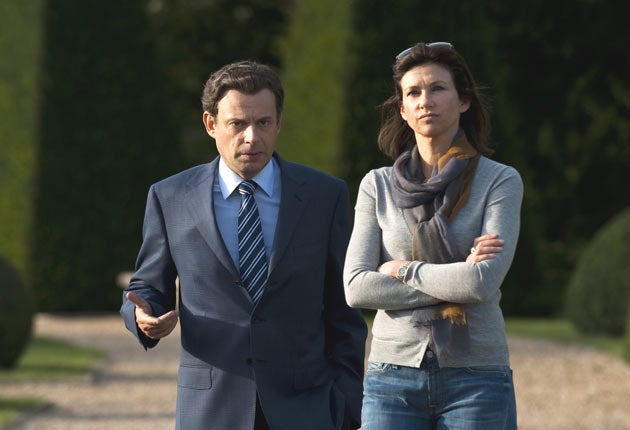First Night: La Conquête, Cannes International Film Festival
A portrait of shameless ambition rewarded

Your support helps us to tell the story
From reproductive rights to climate change to Big Tech, The Independent is on the ground when the story is developing. Whether it's investigating the financials of Elon Musk's pro-Trump PAC or producing our latest documentary, 'The A Word', which shines a light on the American women fighting for reproductive rights, we know how important it is to parse out the facts from the messaging.
At such a critical moment in US history, we need reporters on the ground. Your donation allows us to keep sending journalists to speak to both sides of the story.
The Independent is trusted by Americans across the entire political spectrum. And unlike many other quality news outlets, we choose not to lock Americans out of our reporting and analysis with paywalls. We believe quality journalism should be available to everyone, paid for by those who can afford it.
Your support makes all the difference."The little bastard wants my job," French President Jacques Chirac (Bernard Le Coq) mutters after a meeting with Nicolas Sarkozy (Denis
Podalydès) early in The Conquest (a world premiere in Cannes).
Chirac is right. Sarkozy is angling for power and will do anything to get it. He may be short of stature but he is big on ambition.
Xavier Durringer's film is a Gallic equivalent to the various Peter Morgan-scripted dramas featuring Michael Sheen as Tony Blair (The Queen). It's a well-observed and often funny account of how, in 2007, Sarkozy landed the presidency.
The film is not flattering about its protagonist. Sarkozy is hot-tempered, opportunistic and Machiavellian. He can't hold on to his wife Cecilia (Florence Pernel), who only appears on the campaign trail under sufferance.
Even so, this isn't a hatchet job either. Watching the movie, you can't help but root for Sarko. There is something strangely engaging about his shameless ambition. Podalydès gives a tremendous performance: like Michael Sheen, he doesn't just resort to mimicry.
Somehow, he manages to bring depth and pathos to his portrayal of Sarkozy. When Cecilia leaves him, he looks so forlorn that you can't help but feel sympathy for him... until you realise that he values his career more than anything.
The best scenes are those that pit Sarkozy against his arch rival, the sleek and cunning Dominique De Villepin (Samuel Labarthe). The film suggests the two men detest one another. But they are obliged to work together when Chirac is still in power. They have a series of very frosty lunches at which they insult and threaten each other openly while maintaining a thin veneer of civility.
If Patrick Rotman's screenplay is taken as the measure, we must accept that French politicians are even more foul-mouthed than their British counterparts. They swear constantly. The better-dressed and more urbane they appear, the coarser their insults.
For those not well versed in the minutiae of French politics, some of the references and jokes are on the esoteric side. We all know right from the start where Sarko is going to end up – on top. What the film makes very clear, though, is that his rise to power was far from painless. His wife and (often) his dignity were lost along the way.
Join our commenting forum
Join thought-provoking conversations, follow other Independent readers and see their replies
Comments